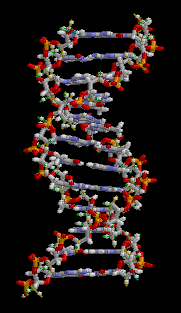Exploring Bioengineering: A Comprehensive Guide to the Major
Written on
Chapter 1: Understanding Bioengineering
What is Bioengineering, and is it the right choice for you? As a senior at UC Berkeley, I've realized there are several key insights I wish I had known when I began my studies. Reflecting on my journey, the decision to choose a major was challenging.
Math seemed tedious, physics had limited career prospects, and biology felt like an endless cycle of reiterating that mitochondria are the cell's powerhouse. I enjoyed English, but worried that a structured program might stifle my creativity. Ultimately, Bioengineering caught my interest. It appeared fascinating and aligned with the growing Biotech industry. However, many people still have misconceptions about what Bioengineering truly entails.
It's akin to the current hype around machine learning—often misunderstood and applied indiscriminately. While Bioengineering is undeniably intriguing, would I endorse it as a suitable major for someone entering a four-year university? Perhaps, but with a few caveats. Here’s my perspective.
Section 1.1: Defining Bioengineering
When people ask me about my major, I often struggle to explain what Bioengineering is. This difficulty arises from the field's vastness, which spans numerous areas such as Cell & Tissue Engineering, Medical Devices, Biomedical Imaging, Synthetic Biology, and Computational Biology.
According to UC Berkeley’s Bioengineering page, this discipline integrates engineering principles with biological systems and biomedical technologies. Yet, this definition doesn’t significantly clarify what Bioengineering entails.
In my view, Bioengineering represents the exploration of science's quantitative aspects. This distinction is crucial, as science often involves both qualitative (descriptive) and quantitative (numerical) analyses. For instance, understanding DNA/RNA structures is qualitative, while predicting potential folding patterns using computational models is quantitative.

The interplay between various scientific domains, such as Physics, Chemistry, and Biology, forms the foundation of Bioengineering. As such, the core curriculum requires knowledge in Biology, Chemistry, Physics, Math, and Computer Science.
Section 1.2: The Challenges of a Broad Curriculum
One major challenge of pursuing a Bioengineering degree is its breadth. Students are required to gain a fundamental understanding of diverse subjects, which can dilute expertise in any single area. For instance, the foundational courses in biology and chemistry may not sufficiently prepare students for advanced topics like Drug Delivery or Immunological Engineering.
Consequently, many students, including myself, find it necessary to take additional classes outside the Bioengineering department to fill knowledge gaps. This approach often leads to a diluted educational experience, lacking the depth of a specialized degree in fields like Chemistry or Computer Science.